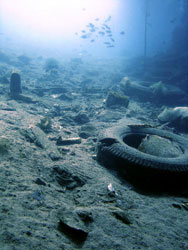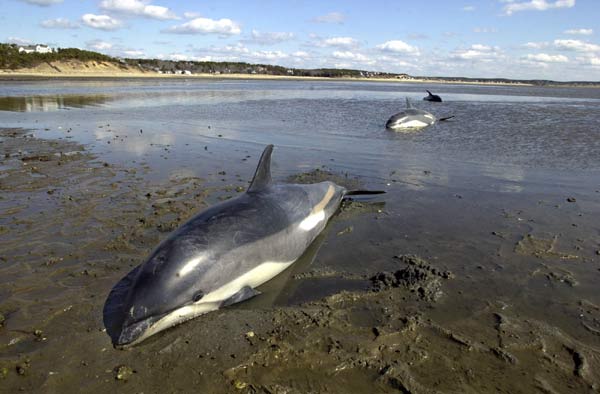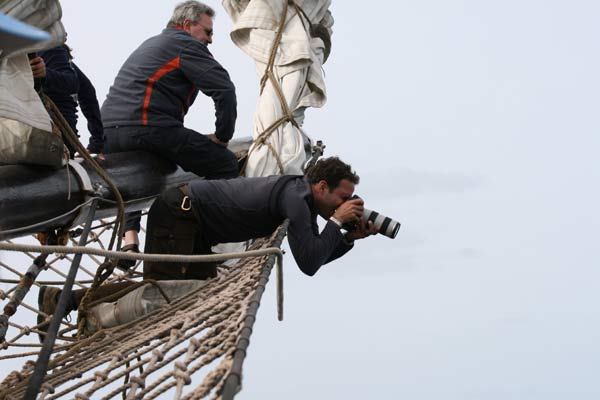Whales, dolphins and porpoises depend on a healthy environment and people that respect their needs as wild animals. Even small actions can make a real difference.
Here are some suggestions what you can do:
- Buy fish only from sustainable fisheries. Inform yourself which stocks are healthy and which products really are “dolphin friendly” and then make an informed decision when grocery shopping. Check with national NGOs which labels to trust.
- Make sure you don’t pollute the oceans. Don’t throw plastic bags and other rubbish anywhere but in a bin, even inland. An amazing number of them ends up in the ocean. Floating plastic bags often look very similar to squids and many dolphins die after ingesting them, because they clog up the digestive system. Rubbish is also a death trap for many other marine species, such as sea birds and turtles.

Marine pollution © M. Naumann
- Support the work of marine protection organizations.
-
Call for help (e.g. the coast guard) and provide first aid to live stranded cetaceans until help arrives – keep the animal wet, the blowhole free and shield it from unnecessary stress. This page contains a list of the institutions responsible for cetacean rescue in the ASCOBANS Parties.
 Stranded white-sided dolphins © IFAW
Stranded white-sided dolphins © IFAW - Immediately report any dead stranded cetaceans to institutions such as marine stations, coastal authorities, marine or zoological museums, NGOs or other related research institutions. In countries in the ASCOBANS area, as many stranded cetaceans as possible are necropsied to find out what caused the death or stranding and to gather more information on their biology. This data is crucial for improving their protection.
- Report online if you saw a life animal at sea. In many countries in the ASCOBANS area, ministries or NGOs record sightings online. Find out who gathers data in your country and when you encounter cetaceans at sea, take note of the position, date, time, species, group size, group composition (adults, juveniles), behaviour, length of encounter and anything else that may have caught your attention. This data gives important information on the distribution and abundance of cetaceans, as well as their health and status.
- When going on a whale and dolphin watching trip or going to sea for other reasons, treat the animals with respect. The ocean is their home – we are just visiting! Choose tour operators that have committed themselves to abide by a code of conduct that regulates the manner and proximity of approach to the animals as well as the number of vessels and maximum duration of the encounter. Do not attempt to touch wild cetaceans – this is dangerous for both of you! Do not feed them or try to attract them. If you notice that the animals feel disturbed or harassed by the approach of the vessel or the behaviour of passengers, speak up! Be their voice!

Whale watchers © H. Frisch-Nwakanma
- Find out about the cetaceans in your region and organize a "Dolphin Day", e.g. in your school. Or organize an event for the annual celebration of the International Day of the Baltic Harbour Porpoise. The more people know about these creatures, the more they will care about them. You can obtain information material from the ASCOBANS Secretariat.
- Make your voice heard with politicians. Ask them to give the conservation needs of cetaceans high priority in marine spatial planning and when giving permissions for marine use, such as shipping, exploration, construction of wind farms etc. Ask them to ensure that marine protected areas are really treated as such, so that the animals can feel the difference. Ask your government to speak up against whaling at the IWC and to support fully the conservation efforts under CMS, ACCOBAMS and ASCOBANS.


